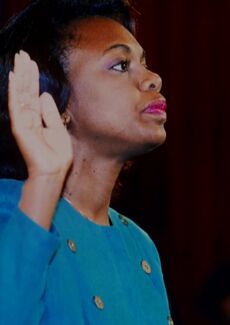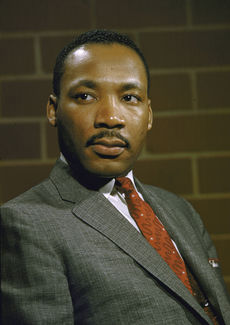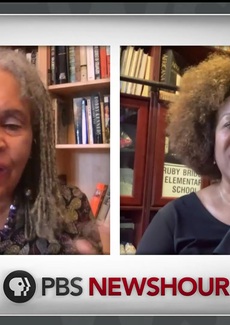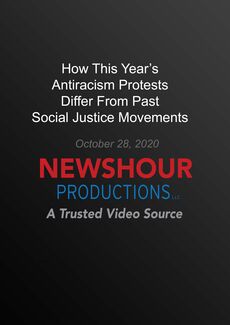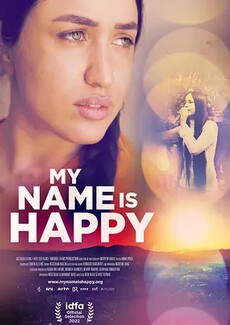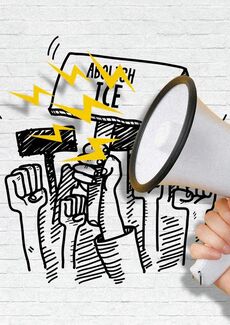 Try these videos to get started. Must be on campus or login with your COM account for off campus access.
Try these videos to get started. Must be on campus or login with your COM account for off campus access.
Want more on finding media? Try Articles & Media.
-
Activist Roots (52:00)
Henry Louis Gates explores the family trees of Brittany Packnett Cunningham and Anita Hill, introducing two women who’ve made profound sacrifices for social justice to the ancestors who made sacrifices for them. Using DNA and the historical record, Gates rediscovers lost heroes, telling stories of African Americans who fought for their rights against enormous odds.
-
Activists (53:00)
Sanjeev Bhaskar explore the lives of the 20th century's greatest activists, examining the lives of Emmeline Pankhurst, Mahatma Gandhi, Helen Keller and Martin Luther King Jr. He'll assess the qualities that made them great, and the groundbreaking ways in which each of them fought for their causes. The 20th Century was the century of activism. It was a century in which a series of extraordinarily brave individuals encouraged whole swathes of society to throw off the shackles of oppression and get the rights they deserved. These activists spoke for those without a voice, often prepared to lay down their lives for the causes they believed in. At the beginning of the century, most women couldn't vote, empires ruled much of the planet and marginalised people across the world were being persecuted. The work of these four icons would help society take huge leaps forward. Clearly, there is much more to do in a pursuit of a world in which everyone is equal, but today's activists stand on the shoulders of these giants. Each of these four greats dared to step outside the expectations society had of them. They changed what the world thought possible for women, the subjugated, disabled people and African Americans, and in doing so advanced their causes exponentially. If it weren't for these four icons, history would be very different.
-
Civil Rights Pioneer Ruby Bridges On Activism In The Modern Era (17:00)
In the 1960s, Ruby Bridges became the first African-American student to integrate into an entirely white public school system in New Orleans. She joins Charlayne Hunter-Gault, who followed in Bridges' footsteps 60 years ago and desegregated the University of Georgia along with Hamilton Holmes, to discuss racism and civil rights in the modern era.
-
Does the Effective Altruism Movement Get Giving Right?: A Debate (01:05:06)
Effective altruism is a social movement that encourages philanthropists to ask themselves how they can benefit others and do good in the world through an evidence-based approach to charity. Over the last decade, this movement has influenced billionaires such as Bill Gates, Dustin Moskovitz, and MacKenzie Scott and resulted in millions of dollars being given each year to "high-impact charities." After various critiques and the 2023 fraud conviction of Sam Bankman-Fried, one of the movement's most prominent advocates, however, many people are questioning whether effective altruism is the best model for philanthropy. Those supporting effective altruism praise its methodological framework for ensuring that charitable donations and efforts do the most good by basing philanthropic giving on rigorous analysis and evidence. They contend that such an approach is practical and ethically obligatory for achieving the greatest positive impact while considering the needs of all individuals equally. Those opposing effective altruism argue that its focus on quantifiable impacts can neglect vital—if hard-to-measure—causes, such as human rights, social justice, and cultural preservation. This approach, they contend, can narrow understanding of what constitutes a beneficial outcome. Does the effective altruism movement get giving right?
-
How This Year's Antiracism Protests Differ From Past Social Justice Movements (9:00)
Philadelphia protests over the killing of Walter Wallace Jr. represent only the latest in a year of nationwide demonstrations against racism and police violence. The ongoing movement has captured attention and provided political fodder -- but it also reflects a long American history of organizing against injustice. Amna Nawaz talks to author Peniel Joseph of the University of Texas at Austin.
-
Inclusion in Activism (6:39)
Massive protests followed George Floyd and Breonna Taylor’s murders; in June 2020, black trans woman Raquel Willis spoke at a Black Lives Matter event, highlighting violence toward queer demographics. Feminism is evolving, with younger generations finding connections between systemic issues and refusing to be complacent. Distributed by PBS Distribution.
-
Music and Activism (5:47)
Roach and Lincoln protest social injustice through music. Those who speak out against injustice become targets. Roach describes performances during the Civil Rights Movement. His son reflects on Roach's rage and the end of his marriage. Distributed by PBS Distribution.
-
My Name is Happy (01:22:00)
My Name is Happy follows Kurdish teenager Mutlu Kaya, who, at 19, reached the finals of Turkey's Got Talent before a brutal attack left her with life-changing injuries and a bullet in her brain. Five years into her recovery, tragedy strikes again as her sister Dilek is murdered by her boyfriend, part of a rising tide of violence against Turkish women. Supported by her devoted family, Mutlu seeks justice for Dilek while battling her own challenges. Inspired by figures like Malala, Mutlu rallies 1.5 million TikTok followers and writes a powerful protest song, reclaiming her voice as she records once more.
-
Standing Up To ICE: How Young People Are Protesting For A Fairer America (2:00)
In 2017, there were 10.5 million undocumented immigrants living in America: people who entered the country illegally; or who stayed after their work visas ran out. For them, The Immigration and Customs Enforcement (ICE) is all too real. In this video series we will discuss the young men and women utilizing the First Amendment to fight for immigrants and against the ICE.
-
Suicide Reduction Activism (6:34)
Mental health experts say more funding and better organization could help reduce the suicide crisis in America. Reducing stigma through activism is important. The Arlee community created a suicide prevention campaign. Distributed by PBS Distribution.
-
Zinzun: A Revolutionary Activist (59:11)
Description
Michael Zinzun was a revolutionary activist who fought for social justice issues. From Pasadena and South-Central Los Angeles to Brazil, Haiti, and Southern Africa. He was most instrumental in organizing the 1992 Watts gang truce.
![]() Try these videos to get started. Must be on campus or login with your COM account for off campus access.
Try these videos to get started. Must be on campus or login with your COM account for off campus access.